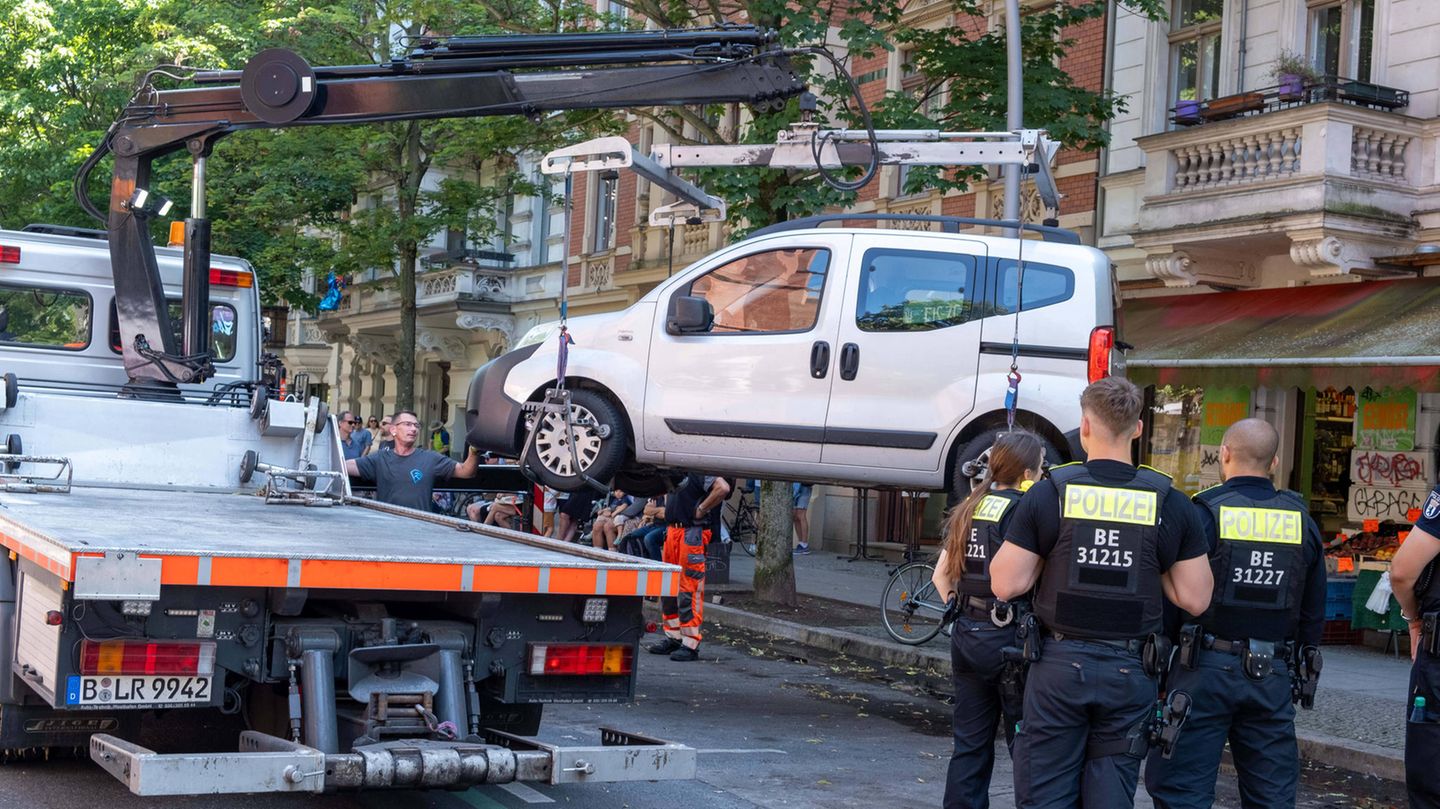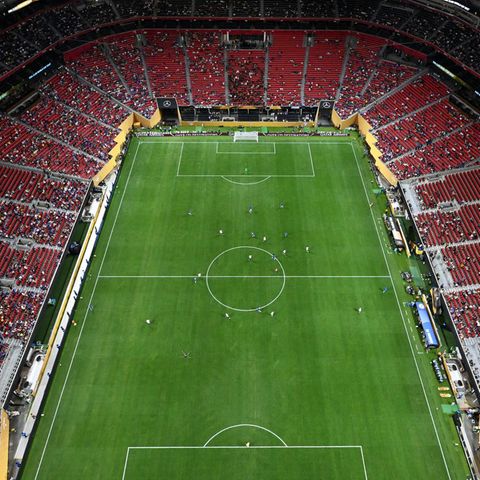More and more cars are parking in cities. There are many private parking spaces that are empty. Parking after work could make room for cycle paths and footpaths.
Anyone looking for a parking space in the city in the evening can get desperate. Some park in a no-parking zone or in a discount store parking lot. The main thing is that the car is finally somewhere. Not only the public order office, but also supermarkets are increasingly taking action against illegal parking. Some shops also open up their parking spaces: this is called after-work parking.
The city of Düsseldorf launched a major pilot project in the summer: three Aldi branches and five Lidl branches will open their parking spaces to residents at 6:30 p.m. at the latest. The spaces can be booked via an app. One night costs 4 euros, a monthly subscription costs 30 euros. So far, 190 parking spaces are available, and a balance sheet is to be drawn up at the end of the year. “We are offering people inexpensive parking close to their front door,” Mayor Stephan Keller (CDU) proudly explained at the start of the project.
Public space in city centers is limited and the number of cars is constantly increasing. At the same time, there is not enough room for pedestrians and cyclists. It is not only large cities like Berlin, Munich or Cologne that are feeling the pressure; there is also a lack of space in many places in cities like Heidelberg, Wuppertal or Münster.
More space for bicycles and footpaths without taking anything away from anyone
The city of Düsseldorf also wants to create more space for bicycle traffic. “This means that parking spaces on the street side have to be removed,” the CDU mayor told ZDF. “And that’s why we wanted to create replacements.”
More cars, fewer kilometers
The number of cars in Germany continues to grow. They are just being driven less and less. In the last five years, the number of cars in Germany has increased by 1.5 million to 48 million, but on average they are driven 1,200 kilometers less. A car now only covers an average of 12,300 kilometers. The rest of the time it sits around.
One person is particularly pleased about the project: Ampido founder Yasotharan Pakasathanan. The business information technology specialist has been working for eleven years to make private parking spaces available to the public. His app allows such private parking spaces to be booked spontaneously in many cities. Not just those of supermarkets, but also those of property management companies and on company premises.
The Düsseldorf project also runs on the founder’s app. In the course of developing his offer, he has studied Cologne and Düsseldorf intensively. “Where there are parking meters, there are about twice as many privately owned parking spaces as there are publicly accessible ones,” he tells the star“These private parking spaces are not even used 50 percent of the time.” So in principle there is enough space.
Father and daughter cannot walk side by side on the sidewalk
As a Cologne resident, he knows the lack of space all too well. “When I walk to school with my daughter in the morning, we can’t walk next to each other because there isn’t enough space,” he says. “We have to walk one behind the other. But there are lots of private parking spaces that we could share.” However, developing them is a laborious business. “Because those who already have a parking space don’t have any problems,” explains the Cologne founder.
Of the early start-ups, only Ampido has stayed on the ball. “You need to be patient,” says Pakasathanan. But with the example of Düsseldorf and the personal commitment of the mayor there, things are changing. “Now we’re finally getting some tailwind.” He is already in talks with other municipalities.
There are three reasons for after-work parking
Parking pioneer Pakasathanan is not the only one who is optimistic. Traffic planner Volker Blees also sees potential in opening up private parking spaces. The professor at the Rhein-Main University of Applied Sciences has examined the topic in a study for the think tank “Agora Verkehrswende”. “I am convinced that there is considerable potential in inner cities that can also be exploited,” Blees told the starHowever, it is surprising how little the municipalities know about the number of private parking spaces.
He sees three reasons that are giving the issue a boost: Firstly, the pressure on municipalities to make their inner cities more attractive. Then there is the pressure on underground car park owners and entrepreneurs to use their property more profitably. Due to the trend towards home offices, there are often many more parking spaces than necessary. Finally, there is the issue of charging stations. Many shops offer these. They are much more worthwhile if cars are connected to them overnight. “There are a lot of reasons right now that speak in favor of opening up private parking spaces,” Blees concludes. And many municipalities are currently on the way.
Supermarkets also want to do something for the district
For Aldi Süd, one of the project partners in Düsseldorf, there is another reason to open up its parking spaces in the evenings: “We want to develop our locations so that they add value to the surrounding area,” explains Julian Koch, project developer for real estate at Aldi Süd. This includes building apartments above branches or opening up the parking spaces.
So everyone can only win. However, the result is not always ideal parking spaces. In Düsseldorf, for example, the rule is that cars must be gone by 8:30 a.m. at the latest, sometimes even earlier. And at night the barrier goes down and you can no longer get to your car. That’s not practical.
There is also a lot of private parking space in underground garages. However, some people don’t want to drive in there. Others want exactly that – they want their car off the street so that it doesn’t get damaged. So not all parking spaces are suitable for everyone. But they would still provide some relief. If only they could avoid some of the traffic looking for a parking space and the stress that comes with desperately looking for a parking space at 9 p.m.
Source: Stern
I have been working in the news industry for over 6 years, first as a reporter and now as an editor. I have covered politics extensively, and my work has appeared in major newspapers and online news outlets around the world. In addition to my writing, I also contribute regularly to 24 Hours World.




